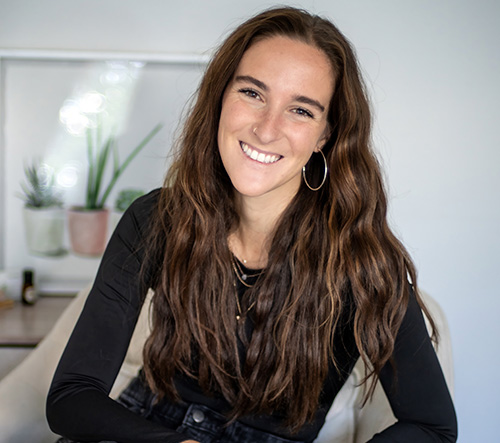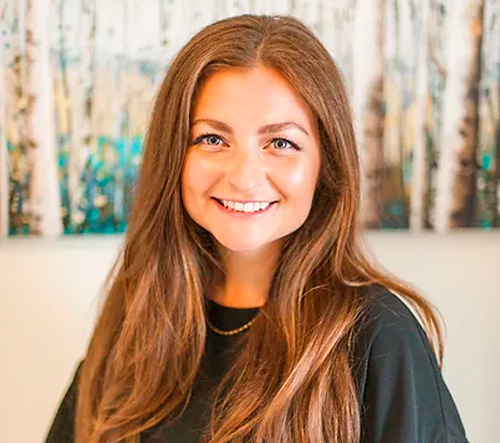Integrative care for mind, brain, and body. We combine master’s-level counseling, neurofeedback, and brain mapping to support measurable progress.
That’s where we do things differently. By offering individual counseling, neurofeedback training, or an integrated plan informed by qEEG brain mapping, we provide another path forward. Every plan is tailored to you, with a focus on measurable progress, clear expectations, and respect for existing treatments and supports.
Neurofeedback, at-home neurofeedback, and brain mapping options for individuals, couples, and organizations.
We offer support for a Wide Range of life situations and mental health concerns, including but not limited to:




Select what you’re looking for:
Select what you’re looking for:

I support adults and teens (15+) who are ready to find relief from trauma, anxiety, depression, or feeling stuck in life, career, or identity transitions. Using a compassionate, trauma-informed, and integrative approach, I help clients reconnect with themselves and move toward balance and resilience. I’m EMDR-trained and draw from person-centered, gestalt, DBT, and somatic practices. Whether we’re working with the nervous system, processing painful memories, or exploring patterns with curiosity, my goal is to create a safe, collaborative space where you feel supported, present, and empowered to grow. I especially enjoy working with athletes, creative people, students, and outdoor adventurers who value resilience, beauty, and balance. Alongside therapy and grounding practices, I also offer neurofeedback as another powerful pathway for nervous system regulation and healing. Outside the office, you’ll often find me climbing, fly fishing, running trails, foraging, or relaxing in the grass under the aspens. My love for movement, play, and nature continually inspires how I show up with clients.

I specialize in working with women in their 20s to 50s who struggle with self-worth, self-esteem, and the guilt that often comes with prioritizing themselves. Finding self-trust and the ability to feel worthy of happiness are common topics in my work. My clients tend to put off therapy because they downplay their struggles, describing their pain as ‘not that big of a deal.’ Many of them grew up in households where expressing emotions wasn’t encouraged and they are still looking for security now. My goal is to create a space where you feel completely free to be yourself—no pressure, no expectations. Therapy with me isn’t about either of us being ‘perfect’—it’s more about you feeling safe, seen, and supported as you figure things out in a way that works for you. I prioritize meaningful conversations that get to the heart of the issue, getting to the root and out of surface level conversation quickly. Going through my own therapy has given me a deeper understanding of what it’s like to be in the client’s seat, and it’s made me even more passionate about helping others find the support that truly works for them. My clients describe me as focused, compassionate, nonjudgmental, and down-to-earth. I truly love what I do and that comes through in my work! I’m a person-centered therapist, but I often integrate elements of Motivational Interviewing, CBT, and IFS.

Pauly is a Colorado native who received his MA in Clinical Mental Health Counseling at Regis University, and is a current doctoral candidate for a PhD in Clinical Psychology program at Fielding Graduate University. Pauly is an empathetic counselor who believes in a compassionate, yet direct approach to therapy. Pauly believes his clients are the experts of their experience. Through a collaborative lens, clients who work with Pauly are able to gain meaningful insight into their experience which in-turn provides the essential resources for navigating change and/or healing emotional wounds. Pauly utilizes an integrated trauma-informed lens blended with evidence-based modalities including ACT, CBT, EFT, and more. Pauly specializes in working with adult individuals and couples, with several years of experience working directly with a broad range of presenting challenges including relationship challenges, PTSD & complex trauma, substance use disorders, mood disorders, personality disorders, and more. More importantly, Pauly believes in building a safe space in which each and every one of his clients feels seen & heard. Pauly identifies as a Latino-American, and is passionate about conducting therapy utilizing a social justice & diversity-informed lens. Pauly has a strong background working with multicultural identities, and believes in the importance of recognizing our unique differences. Pauly loves staying active through basketball, tennis, volleyball, hiking, dancing, strength training, and more. Additionally, Pauly spends time actively engaging in ongoing research projects in trauma, social justice, and neuropsychology.

I am a therapist who works with children, adolescents, and adults to strengthen emotional regulation, increase self-awareness, and build sustainable coping strategies. I specialize in trauma recovery and nervous-system regulation, supporting clients who experience anxiety, chronic stress, emotional dysregulation, and the lingering effects of trauma. My clinical approach blends EMDR, CBT, DBT, Motivational Interviewing, and play therapy, allowing me to tailor treatment to each client’s developmental stage, therapeutic goals, and individual strengths. I integrate mindfulness practices and nervous-system education to help clients better understand their internal experiences and respond with greater clarity, flexibility, and control. My work is trauma-informed, structured, and collaborative, with a strong emphasis on creating a steady, supportive environment where growth feels both safe and achievable. I have extensive experience supporting neurodiverse individuals, including those with ASD and ADHD, and provide structured support for executive functioning and daily-life skills. I also work closely with children and adolescents navigating behavioral or emotional challenges, as well as families seeking improved communication and more effective coping strategies.

Mackenzie believes therapy shouldn’t feel stiff or intimidating— it’s a space for connection, growth, and healing. She brings a warm, casual, and practical style to her work, creating a grounded space where clients feel safe, seen, and supported. Using a systemic lens, Mackenzie considers the full context of her clients’ lives — including family dynamics, culture, relationships, and societal pressures. She works with individuals ages 10+, specializing in adolescents, young adults, relational challenges, men’s mental health, and OCD (using Exposure and Response Prevention). Her integrative approach combines in-session reflection with practical tools to be used outside of the therapy room. She draws from evidence-based modalities such as Internal Family Systems (IFS/parts work), Cognitive Behavioral Therapy (CBT), Exposure and Response Prevention (ERP), and Emotionally Focused Therapy (EFT). With adolescents and teens, she often uses creative, individualized methods to build trust and engagement. Outside the therapy room, Mackenzie enjoys all things outdoors with her pup, volunteering with an adaptive skiing program, and traveling to visit family.
You’ve felt the symptoms. Now you can understand them.

Brianna believes in a holistic approach to counseling, integrating mind, body, and spirit in her work with clients. She strives to help clients weave the various aspects of their lives together through a collaborative approach, meeting her clients where they’re at and partnering with them to create lasting change and a greater sense of wholeness in their lives. Brianna seeks to create a grounding and non-judgmental space where clients can explore their thoughts, emotions, and experiences with freedom and authenticity. She embraces a variety of evidence-based treatment modalities to best meet her clients’ specific needs and goals, such as trauma-informed CBT, DBT, mindfulness-based techniques, solution-focused therapy, emotion-focused therapy, and humanistic approaches. In her work with couples, Brianna focuses on helping partners improve communication, strengthen their emotional connection, and navigate challenges such as conflict resolution, intimacy issues, and life transitions. She believes that life-giving, functioning relationships are foundational to a person’s sense of well-being. Brianna is certified in facilitating both SYMBIS and Prepare-Enrich couples counseling sessions. In her free time, she can often be found adventuring outside with her husband and pup, hosting a game night, or enjoying time with community.